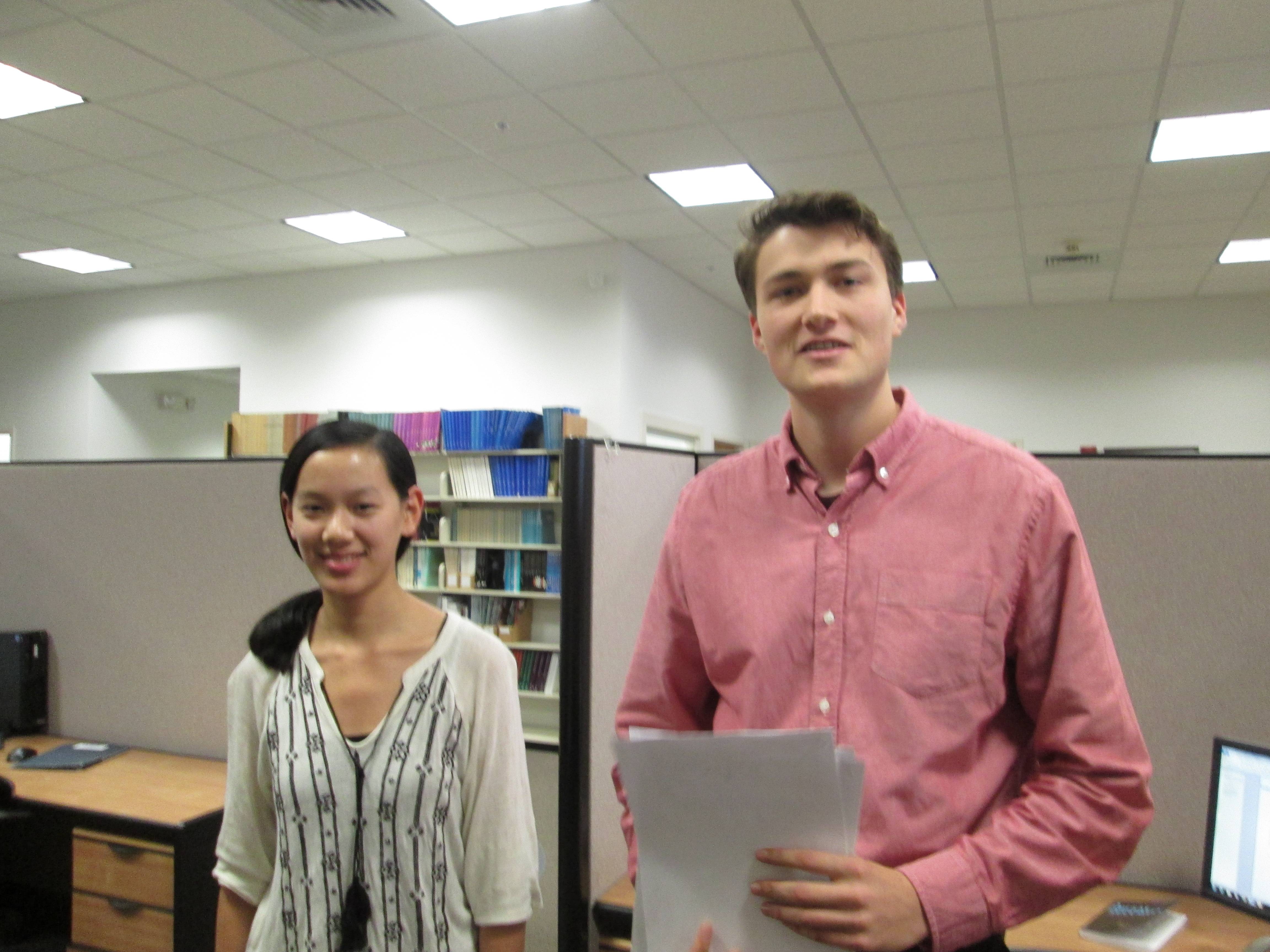AIER Internship Helps Students Broaden Their Horizons
AIER’s academic year internship provides an opportunity for local high school and college students to work like economists. Most of our interns spend four to six hours with us each week during their semester. We assign these students to work with a research fellow who provides direction.
Students work on topics of their own choosing; in addition we challenge them to broaden their interests by working on assigned topics. The premise is to challenge the students, to lead them outside of their comfort zones. Along the way the students learn about evidence-based economic research. As the academic year draws to a close, I’d like to introduce you to two of our graduating seniors from Monument Mountain Regional High School in Great Barrington, Massachusetts who will be heading off to college in the fall.
Forest Davis-Hollander was interested in understanding how gas prices affect the economy and summarized his extensive research in a blog “The Real Benefit of Low Gas Prices.” Forest also learned about Social Security, a topic that he thought he wouldn’t have to consider for at least another 40 years. But as he embarked on the road of learning about the intricacies of the program, Forest picked up a lot of details and realized that Social Security is an important subject not only for “older” Americans, but also for young adults as well as his classmates – high school students. His second blog, “Social Security: Straightening Out Misconceptions” showcased “serious deficiencies in knowledge about Social Security” and concluded that “decisions around Social Security claiming are some of the most important [decisions] one will make.”
Georgia Bass was interested in looking at the effect of drought conditions on food prices. She started by taking a broad view, but then focused her attention on the almond market, which led her to study California. Georgia’s blog, “Amid California Drought, Almonds Defy Economic Gravity” probes the relationship between demand and supply for almonds. The peculiar thing is that the drought has not slowed down almond production, even though a single almond requires about a gallon of water to grow. Georgia concluded that “producers are willing to do whatever it takes, as long as consumers are willing to pay for it.”
After her study of supply and demand, Georgia is now concentrating on reverse mortgages. This financial topic is a new field for Georgia, and the concept of a reverse mortgage is not an easy one. But under careful direction of her supervisor, Georgia is conquering her challenging assignment.
As 21st century education calls for personalized and experiential learning, as well as career and college preparedness, AIER fosters relationships with a variety of area high schools and colleges to offer internship opportunities to local students. This important service to the community supports AIER’s charitable mission.
Picture: Georgia Bass (left) and Forest Davis-Hollander, students at Monument Mountain Regional High School, at AIER.









